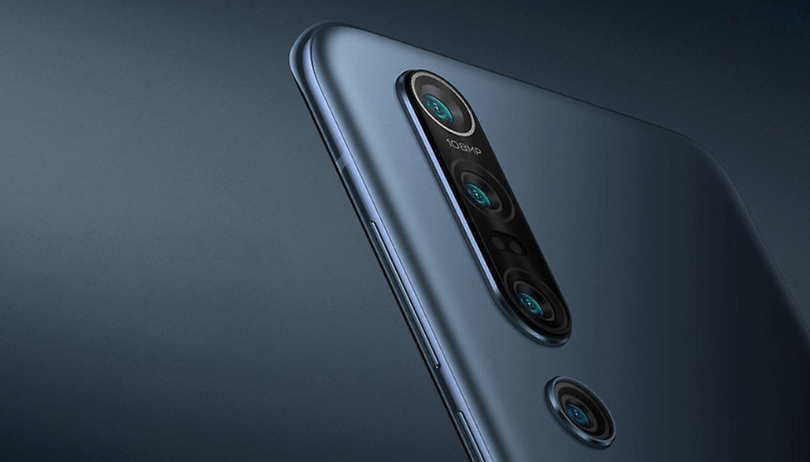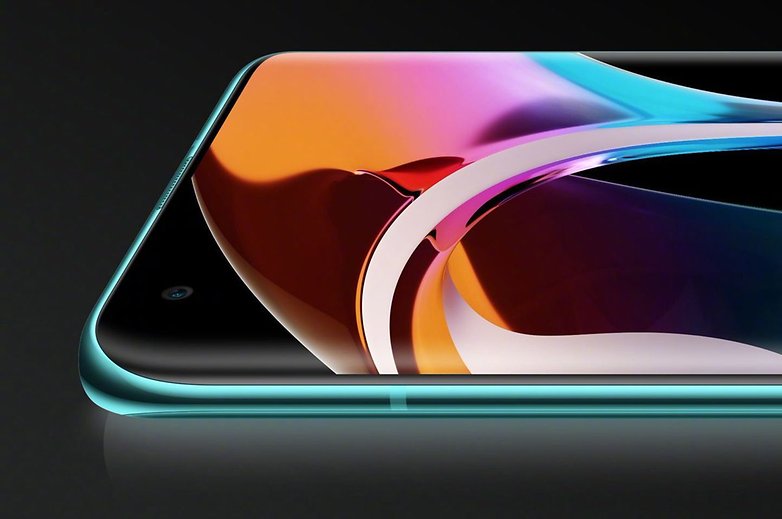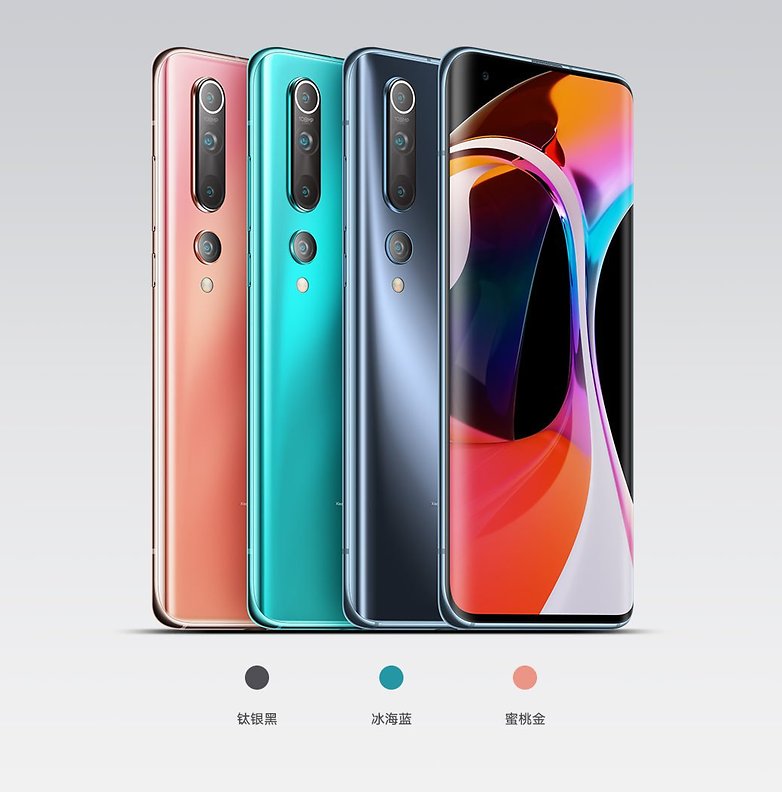The Xiaomi Mi 10 (Pro) is official, and it's a bargain!


In the past few days, we have been eagerly awaiting an announcement from smartphone manufacturer Xiaomi. The Chinese company has now announced the product launch of the Xiaomi Mi 10 and Mi 10 Pro. The new flagships are impressive and are once again a challenge to the big players.
Yesterday, Xiaomi officially presented its new Mi-10 models in China. This includes the basic model and a Pro version, which are not very different from each other, neither optically nor technically, over long distances. Xiaomi relies on curved glass and a bezel-less display with a punch-hole for the selfie camera. The manufacturer is, therefore, focusing on a solid design without experimentation.

The Xiaomi Mi 10 (Pro) display
Samsung has also introduced a display with a refresh rate of 120 Hz with its new Galaxy S20 models. Xiaomi doesn't follow suit here, but both Mi-10 models have a 6.67-inch AMOLED display with a 90 Hz refresh rate. In most current smartphones the refresh rate is 60 Hz. A difference between 90 Hz and 120 Hz will probably not really be noticed in everyday life though. The display has a resolution of 1,080 x 2,340 pixels and thus offers Full-HD+. Gorilla Glass 6 protects the panel from scratches. The hole for the selfie camera is located in the top left.
Processor, battery, and lots of RAM
As was to be expected, Xiaomi uses a Snapdragon 865 clocked at 2.84 + 2.42 + 1.8 GHz. The Octa-core processor is 5G compatible and comes with either 8 or 12 GB of RAM depending on the model. Like Samsung, Xiaomi and its S20 devices rely on the new LPDDR5 memory, which is designed to work more efficiently and faster.
Internally, the Xiaomi Mi 10 offers users 128 or 265 GB of storage. For the Pro model, it is 256 GB or 512 GB. The Xiaomi Mi 10 is powered by a 4,780 mAh battery, which can be quickly charged with up to 30 watts. A proper power supply is included by the manufacturer. Up to 10-watt reverse charging is also on board, as is wireless charging with up to 30 watts. The Mi 10 Pro comes with a smaller 4,500 mAh battery, which even supports up to 50-watt fast charging. Reverse charging and wireless charging are also part of the feature set here. For the graphics unit, Xiaomi uses Qualcomm's Adreno 660 in both models. The reason for the smaller battery in the Pro model is the additional telephoto camera that takes up space.
The best the smartphone camera currently on the market
The independent testers from DxOMark have probably already tested the new Xiaomi Mi 10 Pro in their labs. The Xiaomi Mi 10 Pro's camera scores a whopping 124 points in the test, thus knocking the Huawei Mate 30 Pro's camera (123 points) from its throne. As DxOMark hadn't yet tested the Samsung Galaxy S20's camera, it will be exciting to see what we can expect here. Huawei, too, is in the starting blocks with new flagships, so we can probably expect to see changes on the DxOMark leaderboard very soon.
The camera in the Xiaomi Mi 10:
- 108 MP Samsung HMX ƒ/1.69 Iris
- 13 MP wide-angle lens ƒ/2.4
- 2 MP Macro sensor
- 2 MP depth sensor
The camera in the Xiaomi Mi 10 Pro:
- 108 MP Samsung HMX ƒ/1.69 Iris
- 12 MP telephoto lens ƒ/2.0
- 8 MP ultra-tele lens ƒ/2.0 (OIS) + 10x hybrid zoom
- 20 MP ultra-wide-angle Sensor ƒ/2.2
Both models come with a 20-megapixel selfie camera with ƒ/2.0 on the front.

Software and features
The Xiaomi Mi 10 (Pro) comes from the factory based on Android 10 with the adapted user interface MIUI 11, and a fingerprint sensor is also on board, even if you can't see it. This is located under the display glass. Rumors are currently circulating that the Xiaomi Mi 10 Pro can record videos in 8K like Samsung's Galaxy S20 series. We cannot currently confirm this. DxOMark also did not mention 8K videos in its test, but only tested in 4K quality.
How expensive will the smartphones be?
It can be assumed that the Xiaomi Mi 10 Pro will turn out to be a few hundred dollars cheaper than the models of Samsung's competitors. Prices for the local market are not yet known. Actually, we should learn more here in the wake of the MWC, which is now canceled, patience is now required. With the help of conversions, however, a tendency can be seen that the price-to-performance ratio is once again very attractive.
The cheapest Xiaomi Mi 10 costs the equivalent of about $570. The pro model is about $715 for the cheapest variant and $850 with 512 GB of storage. It can be assumed that prices in the west will be around $80 to $100 higher. Compared to prices well beyond $1,000 for current top smartphones, this is still good bang for your buck.














awesome
-
Admin
Feb 17, 2020 Link to commentGreat phones. Still on the expensive side for my taste but better than the competition for sure
Great! In my opinion Xiaomi makes best phones money can buy and rightly so considering the value offered.
MIUI past the bloatware present, some bugs, and a few annoyances is one of the better skin out there when compared to Huawei's Vivos's and OPPO's skins. It has some features I miss on my Oneplus like Data count, and Basic phone, messaging is better on Xiaomi's MIUI.